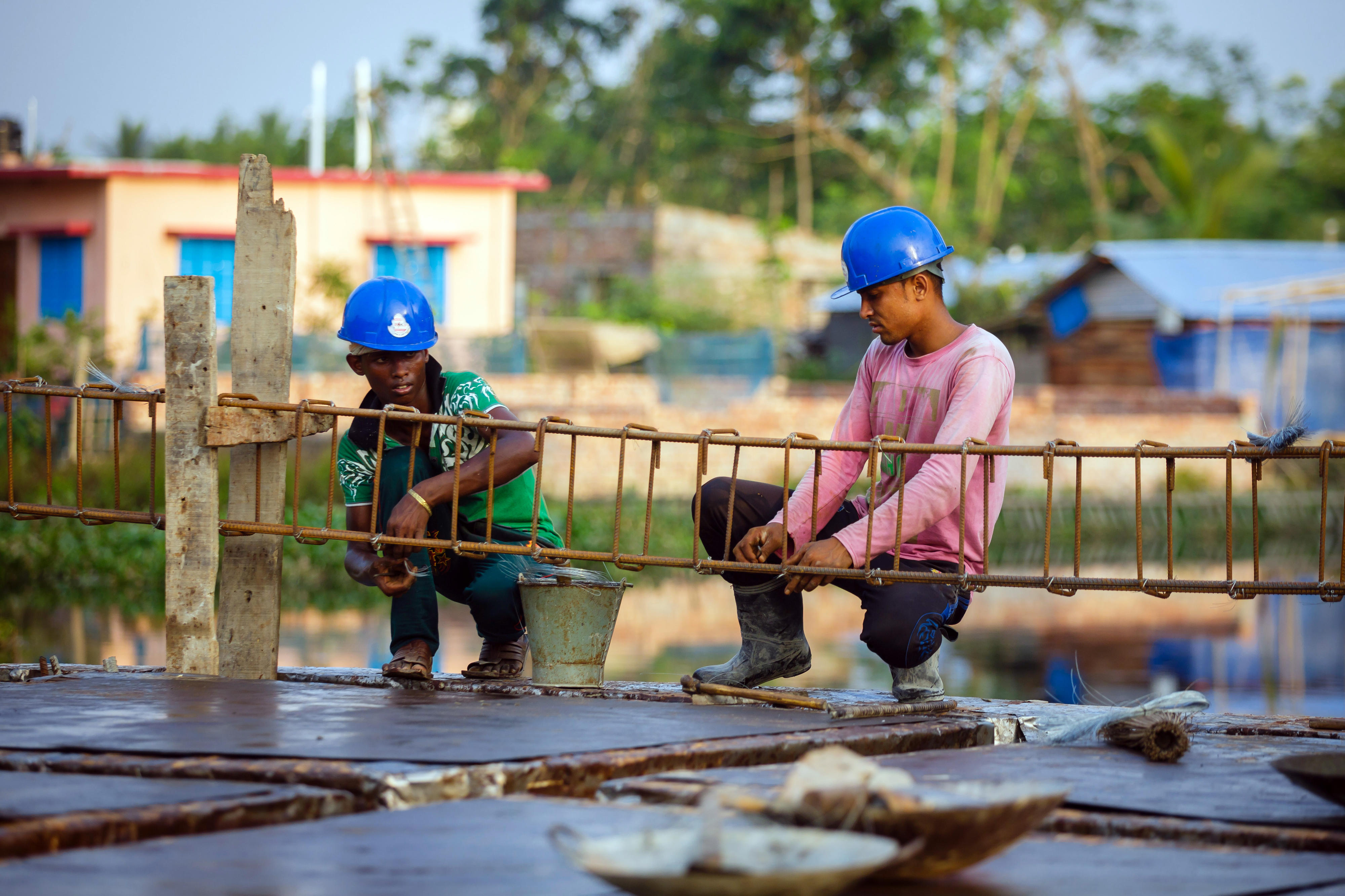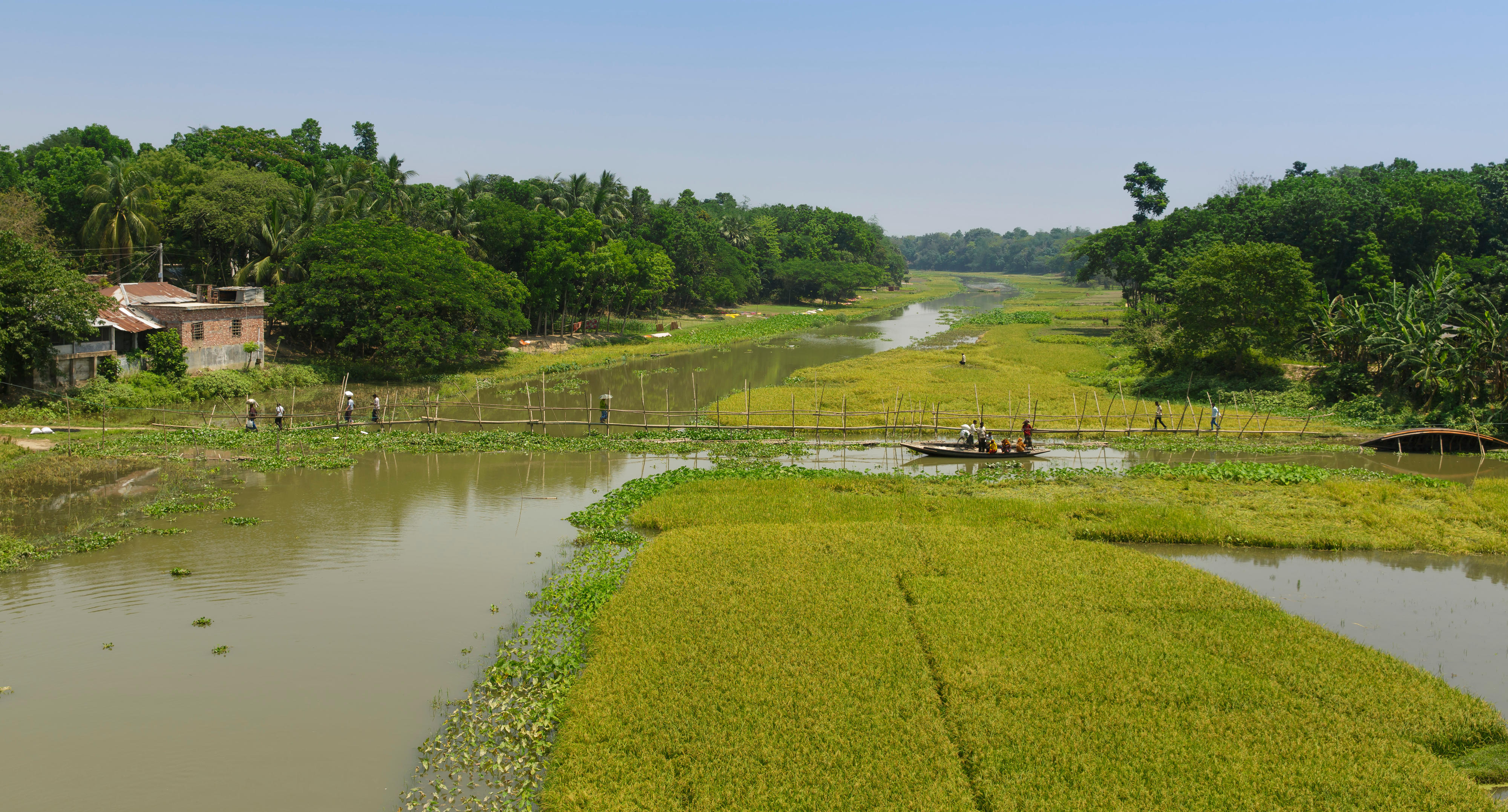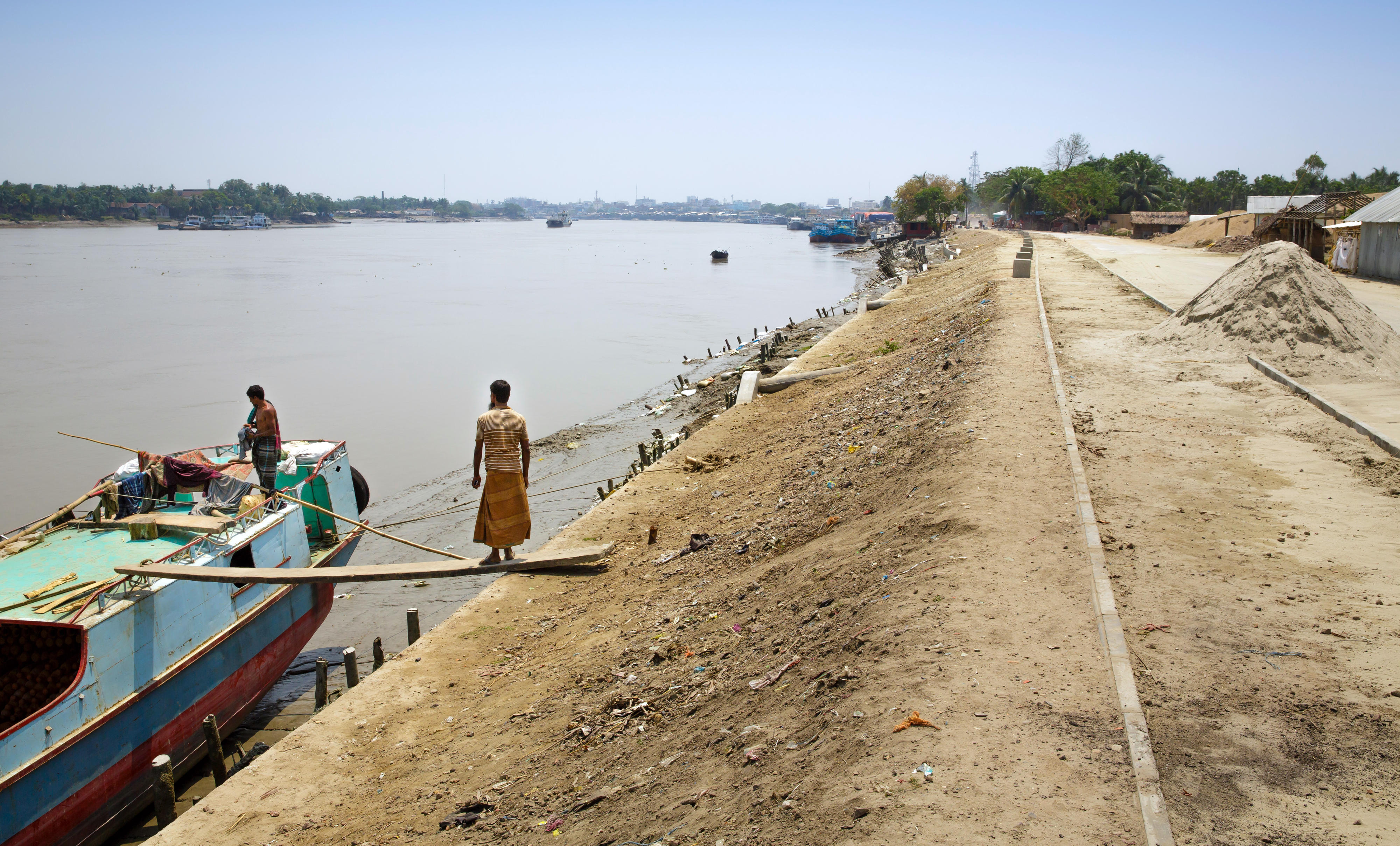Two workers at a construction site on the banks of the Mayur River in Khulna town working on a bank stabilisation.
Copyright© Thomas Trutschel/photothek.net
Bangladesh: cooperation in action New prospects in Khulna
The melting of glaciers, ever heavier monsoon rains, more frequent tropical hurricanes, rising sea levels and worsening erosion along river banks are together destroying the living space of millions of people. People on low incomes are particularly hard hit by the effects of climate change.
Najma and Qulsum are two internal climate migrants who now live in the slums of Khulna, the third-biggest town in Bangladesh, which lies in the south-west region of the country. Before that they each of them lived in one of the particularly vulnerable areas that are found along the country’s many river banks and coastal strips.
Severe river erosion destroyed all of Qulsum’s family’s arable farmland and forced them to relocate to the nearest larger town. Najma had to leave her old home after a tropical hurricane had destroyed her few meagre possessions. She was able to find shelter in a dilapidated building with no windows in one of the slum settlements in and around Khulna. While Qulsum and Najma have found work, all be it as very low-paid domestic servants, many other people living in these settlements – among them 18-year-old Rokeya – have no work whatsoever.
Improving living conditions in Khulna
Roughly 70 per cent of the slum dwellers in Khulna came there because of the effects of climate change. However, the city of Khulna with its 1.5 million inhabitants itself lies only two to four metres above sea level and is increasingly affected by floods as a result of climate change. Through development cooperation activities, Germany is assisting the city authorities (External link) in managing the influx of people relocating to Khulna in order to escape the effects of climate change.
In order to improve the living conditions in slums and people’s opportunities for employment, upskilling programmes are combined with direct support measures. In addition, the inhabitants are given better access to social services and financial services such as microcredits.
Rokeya tells us happily: “Thanks to my further training course in electrical engineering, I now have better prospects – as a woman – of finding a job, especially in households where, in the absence of a male family member, a male technician would not be acceptable. That is why I am very pleased about this further training.”
Protecting the town against flooding
The regional Cities Development Initiative for Asia (External link) (CDIA), which also benefits from funding provided as part of German development cooperation, is supporting the efforts of the municipal authorities in Khulna to provide better protection against the regular flooding which the town experiences and adapt to climate change: roads are being paved and fitted with drains, and drainage channels are being constructed. As a result of this work, the urban neighbourhoods are no longer flooded for weeks at a time. The slum areas benefit particularly, because the improved roads mean that they now have permanent connections to the transport grid, resulting in new economic opportunities for the people who live in them.
Dam road to protect a residential area at the port of Khulna in Bangladesh
As at: 13/07/2023


